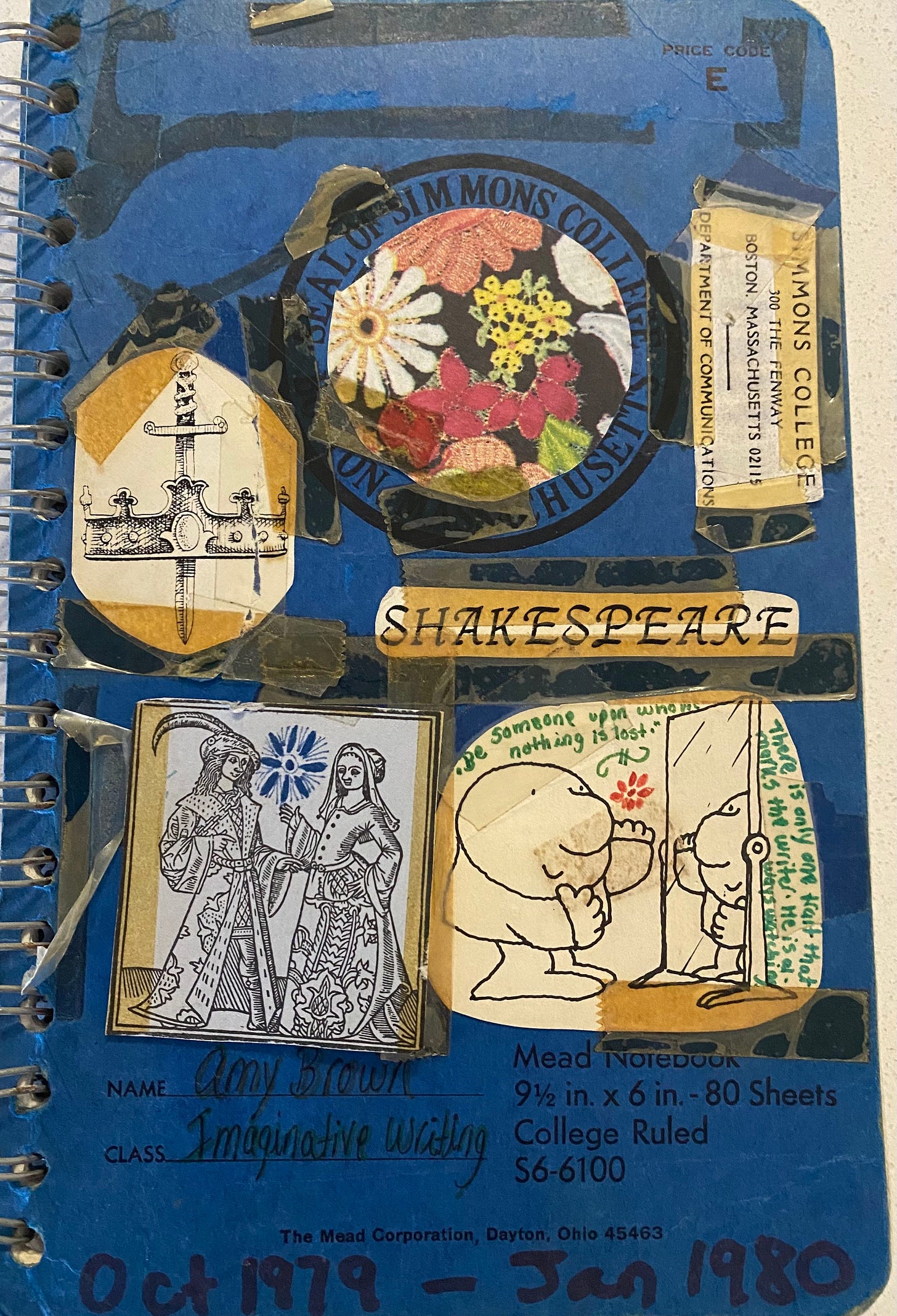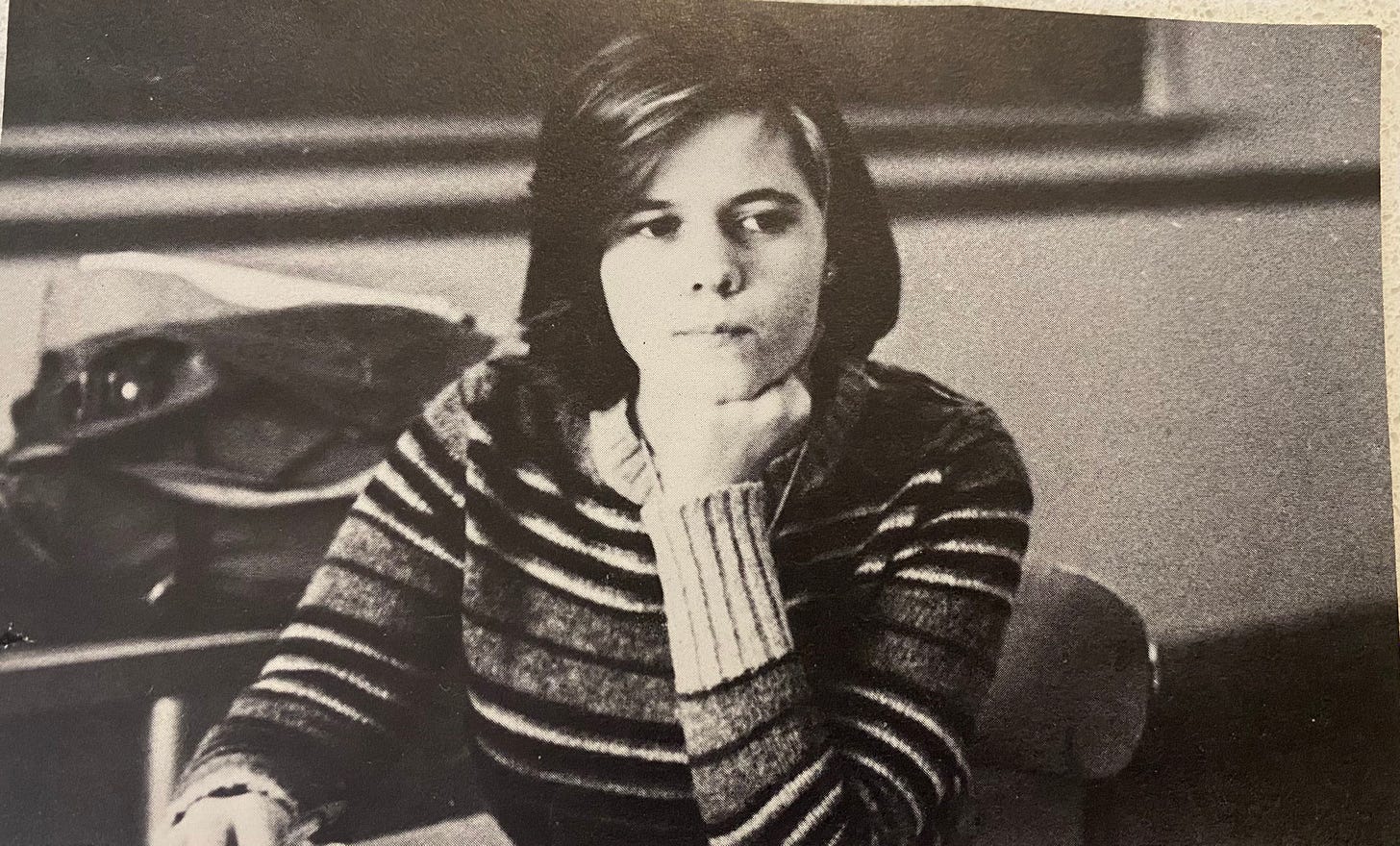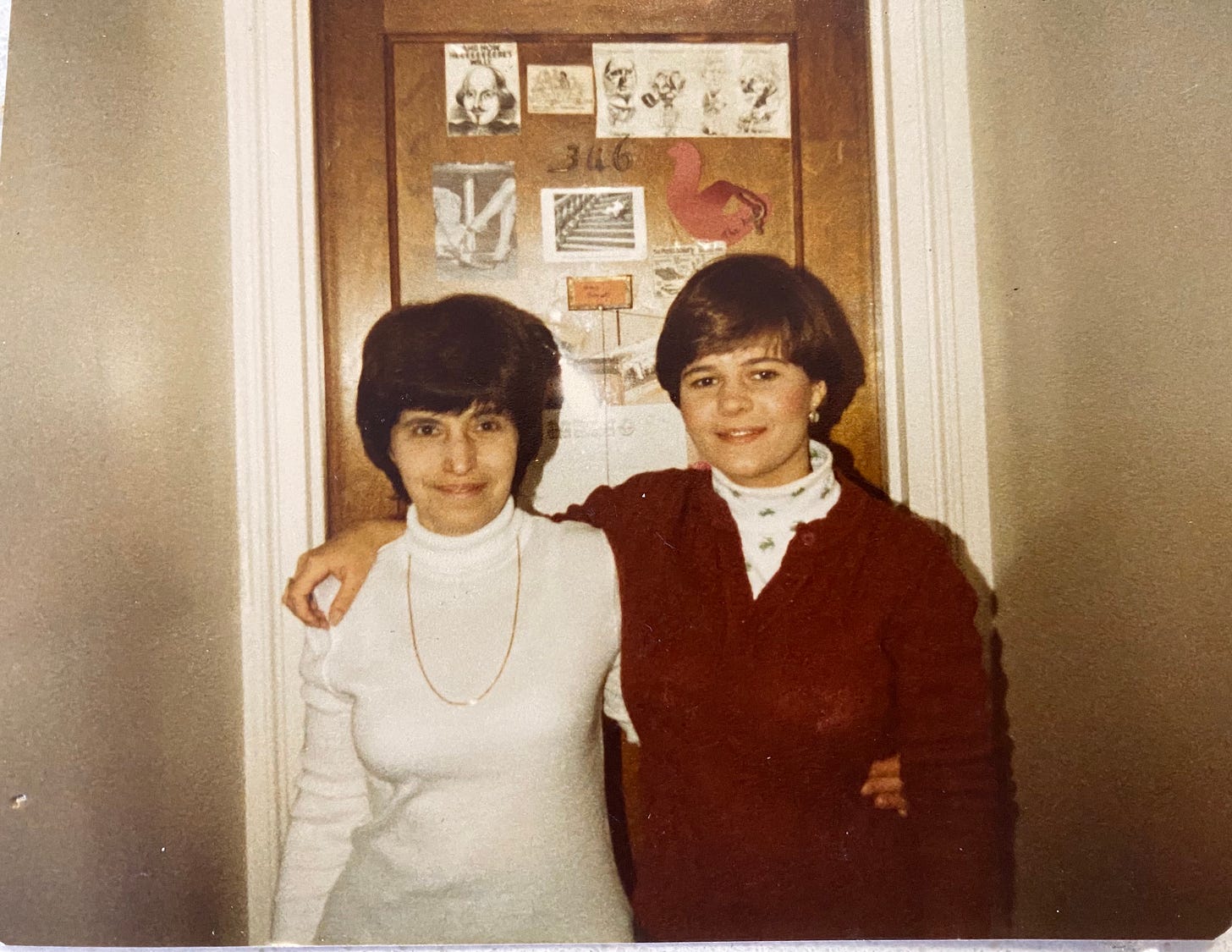The Circle Game
I am every age I have ever been, spinning around and around in the circle game. I am at once old and wise and young and hopeful, in this heartbreakingly beautiful shape-shifting life.
Here's the thing about getting older I didn't expect: I am every age I have ever been. It doesn’t matter that my chronological age is 64. That little girl of 4, that teenager of 14, the college student of 19, the young woman getting her heart broken again and again in her 20s, the one taking the biggest leap of her young life, marrying at 29.
The kaleidoscope of images continues through the decades: I am mother of two little girls. I am daughter, sister, aunt, cousin and friend. I am a writer and a traveler. I move between the countries of Sweden, Malta, the U.S. At midlife, grief comes for me, with the death of my best friend, my father, my beloved in-laws—and now the greatest loss of all, my mother.
We are not a single static self but rather multiple selves who carry viscerally, in muscle and bone, every hope, dream, disappointment, love, loss and yearning we’ve ever had. All the wonder and all the hurt. This conundrum is very present for me as I sit these days with my photos and journals that tell a story as familiar and intimate as my own skin.

Nineteen-year-old Amy writes:
“Why do bits and pieces of my other, younger selves jut into my personality now? How can you feel strong in the inner self when you can’t ever shed the skins of the outer selves? I probably will have to wrestle with such questions until I grow up, which will probably be a continuous, infinite process. I’ll never reach a pinnacle then? My pinnacle?…Dreamer that I am, I’ll always believe in a deeper satisfaction beyond.”
My heart aches with the same pain I must have felt then. “Oh, baby girl,” I want to say to her (to me now, who still needs to hear it). “How you longed to be grown up, dear one. You were right, though, about wrestling with these questions, that it never ends. I know you hoped that at some point you’d have answers to all your questions. What we didn’t know then is that we never reach a moment of being fully grown up. It’s all just living and loving. And it can be as beautiful as we want to make it.”

In that college journal, I copied out these words from Virginia Woolf’s To The Lighthouse. Somehow, my younger self knew:
“And all the lives we ever lived and all the lives to be are full of trees and changing leaves.”
I am also looking for my mother in the pages of my journals. And of course, I find her. November, 1979. I am a college sophomore, homesick. “I miss Mom,” I write. “I want to go home. I wish they weren’t so far away.” I call her the next night but I write, “I didn’t mention my melancholy because I knew it was receding, would pass, and that in less than ten days I’d be home to talk to her about my life, school, L. [boyfriend at the time], friends, sex, the works. I would be able to talk to the person who knows and loves me best. I really want to tell her everything.”
Those nights of new adulthood, when you’re still a teenager, hardly grown, but living away from home for the first time at college. I remember standing in the hallway of my all-women’s college in Boston, using the communal phone and then going back to my room to write in my diary: “Talked to Mom tonight. I love hearing her voice. I miss her so much and my warm home, so comforting, my family, mine.”
On a visit home for Thanksgiving that year, my younger brother in a sullen and anti-social phase (pity the boy who is a middle child and also has two sisters) sequestering himself in his messy room, I write, “Mom and I talked about unkempt boys and hearts of gold.” She had been trying to persuade me that my brother still loved my sister and I, a heart of gold still beating beneath the long hair and rock music. And she was right, as she was about most things.
In my mid-twenties, I called home one night after taking a new job and moving to a strange city, wondering as soon as I had unpacked whether I had made a terrible mistake. Mom knew immediately from the sound of my voice that something was wrong. She talked me through it. She calmed me down. She reassured me, as she had so many time before, that everything would be alright.
Life would go on turning, like the carousel rides of my childhood, and my own daughters’ childhood. Around and around we go on our painted ponies, spinning ourselves dizzy while looking for clarity, as Joni Mitchell sings about so beautifully in “The Circle Game.”
And the seasons they go round and round
And the painted ponies go up and down
We're captive on the carousel of time
We can't return we can only look
Behind from where we came
And go round and round and round
In the circle game
In the moments when I haven’t been sitting with my journal and trying to do one of the hardest pieces of writing of my life—the tribute I will share at Mom’s Celebration of Life next weekend—I have been in conversation with Julia Louis-Dreyfus. Her podcast “Wiser Than Me,” in which she gets schooled by women older and wiser than her, is warm and wonderful. It’s not simply the extraordinary women she features on the show—this second season my favorites included Sallie Fields, Bonnie Raitt, Patti Smith and Anne Lamott—but the stories Julia tells about her own life before the interview.
Yet my favorite part are the short Zoom conversations Julia has at the conclusion of every episode with her 89-year-old mother Judith Bowles, so she can tell her all about it and ask her a question, too. Julia calls Judith “Mommy” and the love between them is a delight to behold. But the questions Julia asks her mother break my heart a little every time. I don’t get to ask any more questions of Mom. And there is so much more I would like to know.
All I can do is circle back, and back again, to those younger selves that need my nurturing, even now. And when I stop my spinning, this truth glitters in my path like a firefly in the night: My inner voice has always been wise enough to know when it was time to take the next brave step.
Question for the comments: What question do you most want to ask your mother? And if she is no longer here to ask, how do you think she’d answer it?
Did you know if you hit the little heart ❤️ at the top or bottom of this newsletter each week, it makes it easier for people to find their way here? I read and respond to every comment, which I appreciate so much. Getting to know my subscribers is the best part of this endeavor.
Three Songs for 3D
Divorce
“Meet Me Halfway,” Bonnie Raitt
You give me every little reason in the book
But there's one thing that I think you've overlooked
You say you're tired, well so am I
Baby you've got to try and
Meet halfway or we ain't gonna make it, baby
Dementia
“Bookends,” Simon & Garfunkel
Time it was, and what a time it was, it was
A time of innocence, A time of confidences
Long ago, it must be, I have a photograph
Preserve your memories; They're all that's left you
Destiny
“Circle of Steel,” Gordon Lightfoot
Rows of lights in a circle of steel
Where you place your bets on a great big wheel
High windows flickerin' down through the snow
A time you know
Sights and sounds of the people goin' 'round
Everybody's in step with the season






Around and around we go again. The seasons do stack up yet, with a bit of distance, when you look back, it does appear circular. Older me learns from younger me - when I reflect on where she was. Older me (as a mom) learns from younger me (my daughter). And I continue to learn from my older me - my mom.
This essay touched me deeply.
I wish I kept my journals from my youth. I would love to walk through those words. Funny, I never thought they contained any value so we parted ways.
I want to ask my mom - what saved you when you were in the throes of mothering? She was a single divorced mom raising 3 kids, thrust back into school and the workplace. What was her saving grace back in those days?
Thanks for inspiring me to have this conversation.
Sending love and light as you continue to navigate all your homesickness. 🫶
All true. What would I ask my mother? I don’t know. I would just want to be in her arms again.